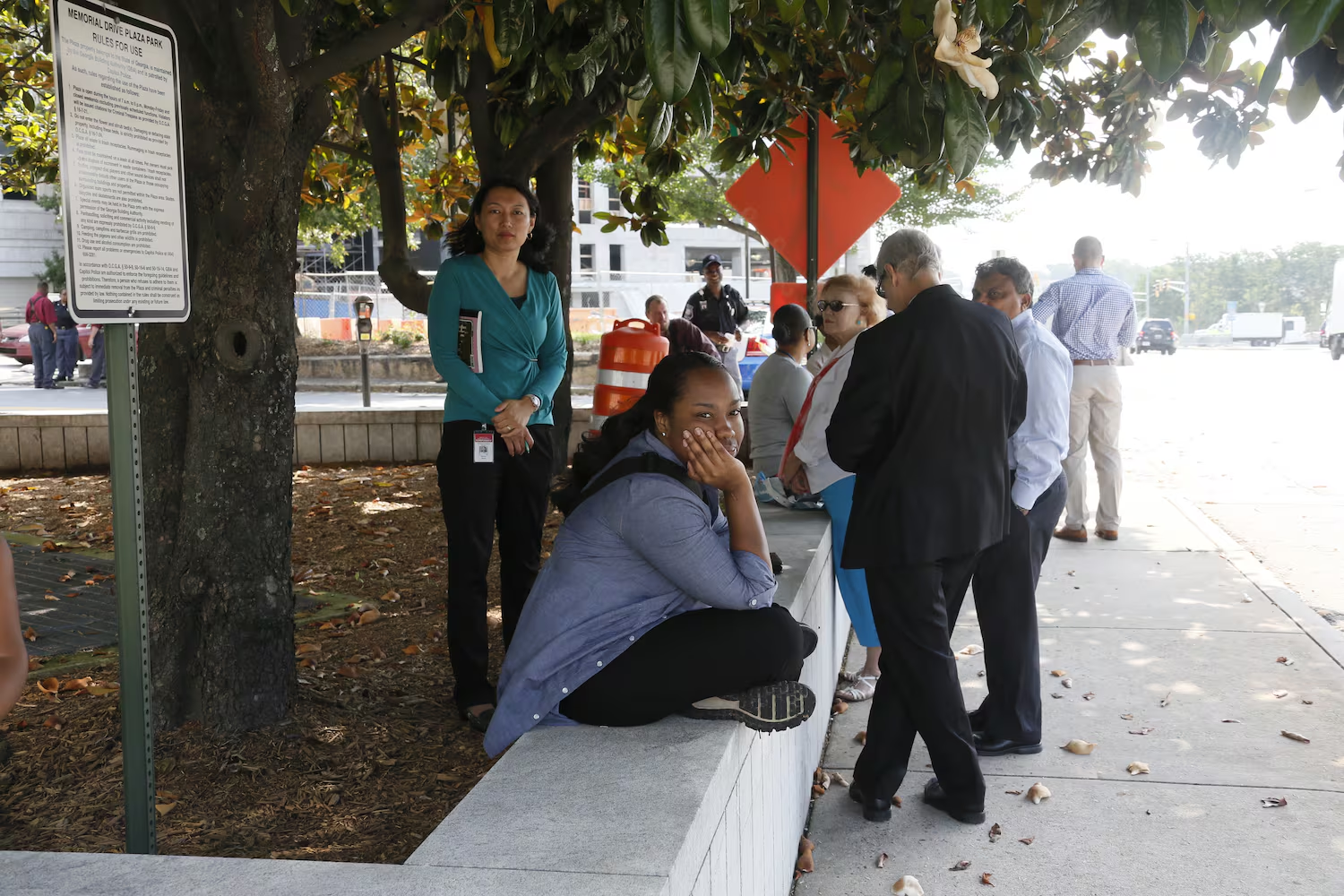Georgia Election Disruptions: Secretary of State Brad Raffensperger Links Non-Credible Bomb Threats to Russian Sources
Georgia Secretary of State Brad Raffensperger recently disclosed that bomb threats, deemed non-credible, briefly disrupted voting at two polling locations and were traced to sources in Russia.
Speaking to reporters on Tuesday, Raffensperger explained that officials received information suggesting Russian origins for the threats. He noted that Georgia officials took immediate action to ensure public safety, although he did not provide specific details on how authorities linked the threats to Russia.
“We’ve heard some threats that were of Russian origin,” Raffensperger stated. “In the interest of public safety, we always check that out, and we’ll just continue to be very responsible when we hear about stuff like that.” The secretary emphasized the state’s commitment to secure and uninterrupted voting, expressing that officials would continue to take precautionary measures in response to any potential interference.
The non-credible bomb threats led to a temporary shutdown of two polling stations in Union City, just outside Atlanta, as reported by the Fulton County Police Department.
According to the U.S. Census Bureau, Union City’s population is nearly 90% Black, raising additional concerns about the implications of such threats on communities of color and the potential for voter suppression through intimidation tactics.

Law enforcement responded swiftly to the threats, prioritizing voter safety and assessing the credibility of the information received. Authorities ultimately determined that there was no imminent danger, allowing the affected polling locations to reopen shortly after the disruption.
The Federal Bureau of Investigation (FBI) has also been closely monitoring election security across Georgia. In a statement, the agency acknowledged the existence of bomb threats statewide but stopped short of confirming the origin of the threats or their credibility.
READ ALSO: Google Cleared of Allegations Over Profiting from ‘Gift Card Scams’ in Dismissed Lawsuit
“The FBI is aware of several bomb threats that have been made around the state of Georgia. Election integrity and protecting our community is our highest priority, and the FBI is working closely with state and local law enforcement partners to respond to election threats and protect our communities as Americans exercise their right to vote,” the FBI said in its statement.
The agency stressed that it had no evidence to suggest the threats were credible, though it remained vigilant and proactive in its response.
The FBI’s involvement underscores the significance of election security and the high stakes of ensuring a fair and safe voting process. The agency has increased its collaboration with state and local law enforcement to address any attempts to disrupt the democratic process.
Raffensperger voiced strong concerns about the intent behind the threats, attributing them to foreign entities seeking to sow discord within the U.S. “They’re up to mischief, it seems, and they don’t want us to have a smooth, fair, and accurate election,” he remarked about Russia’s alleged involvement.
“Anything that can get us to fight amongst ourselves — they can count that as a victory.” His comments reflect a broader anxiety over foreign interference in American elections, particularly when it involves tactics intended to disrupt or intimidate voters.
While the bomb threats in Union City were ultimately deemed non-credible, the scare has amplified concerns about foreign influence and the potential for similar tactics in future elections.
In recent years, the U.S. has faced various forms of election interference from foreign actors, particularly through cyber threats and misinformation campaigns. Raffensperger’s remarks underline the persistent challenge of safeguarding American elections from these disruptive tactics and maintaining public confidence in the electoral process.

As Georgia’s recent bomb threats illustrate, election security has become a critical focus for state and federal authorities, especially given the global implications of American democratic processes. The U.S. Department of Homeland Security and the FBI have both highlighted the need for increased vigilance and interagency cooperation to protect voters from both domestic and foreign threats.
Raffensperger’s commitment to maintaining a secure election environment and the FBI’s rapid response signal a robust approach to addressing these issues. The two agencies are expected to continue working together to monitor threats and support the uninterrupted right to vote for all citizens.
As election security concerns grow, Raffensperger and other officials continue to stress the importance of informed voting and community resilience in the face of intimidation tactics. This recent incident serves as a reminder for voters to remain vigilant and engaged, confident that local, state, and federal agencies are prioritizing their safety and the integrity of the election process.
Discover more from Cine critique
Subscribe to get the latest posts sent to your email.

